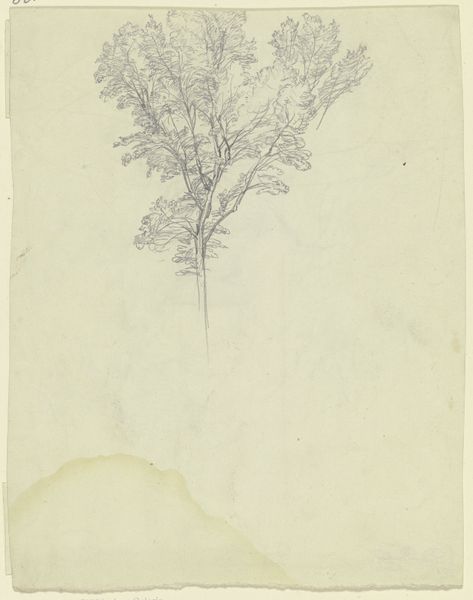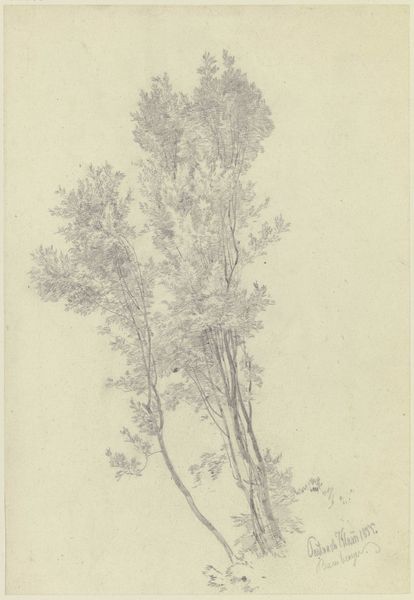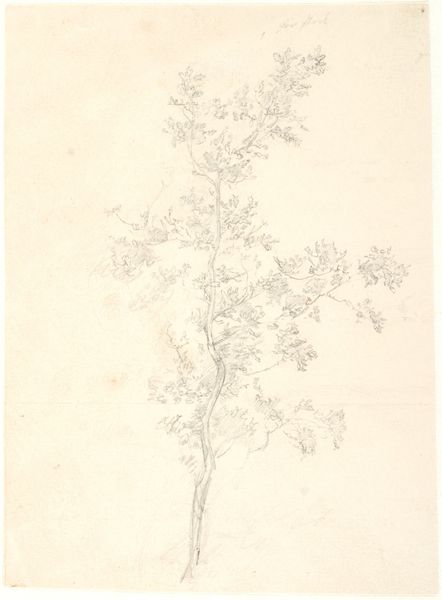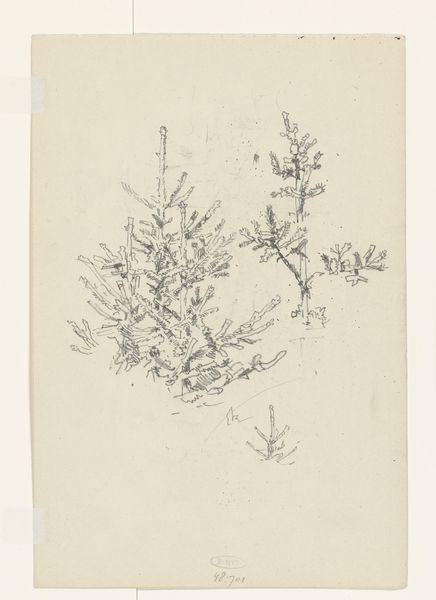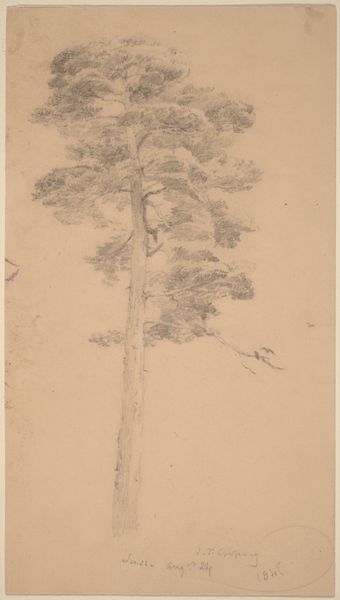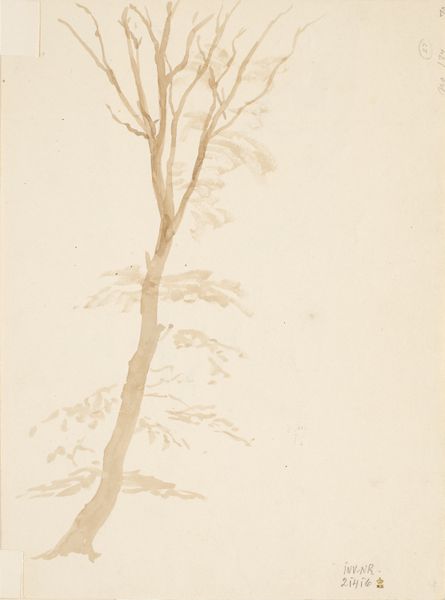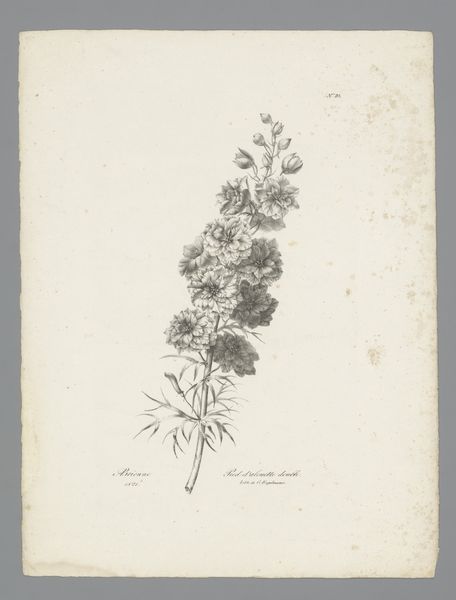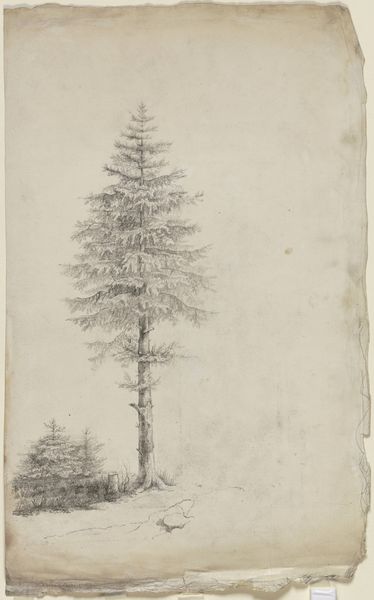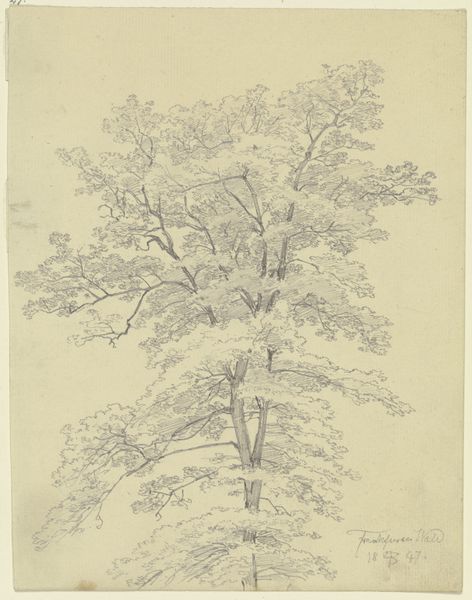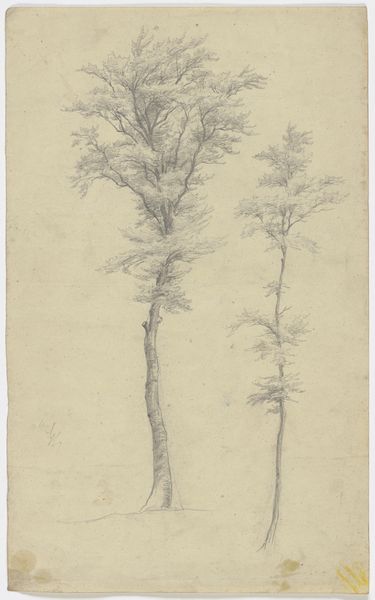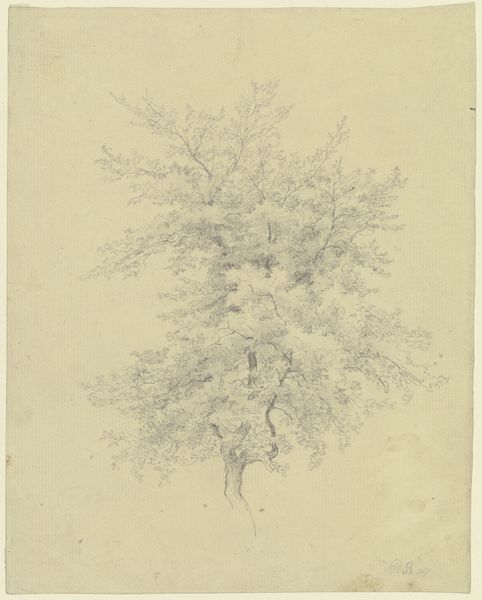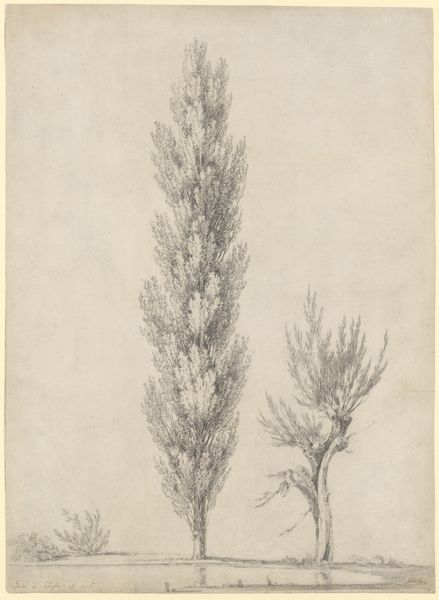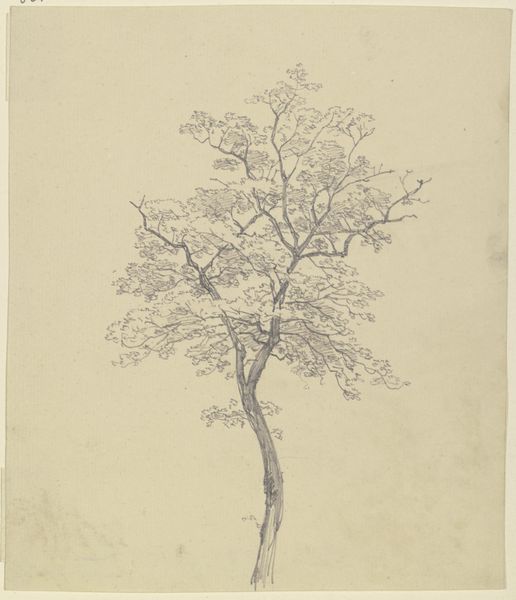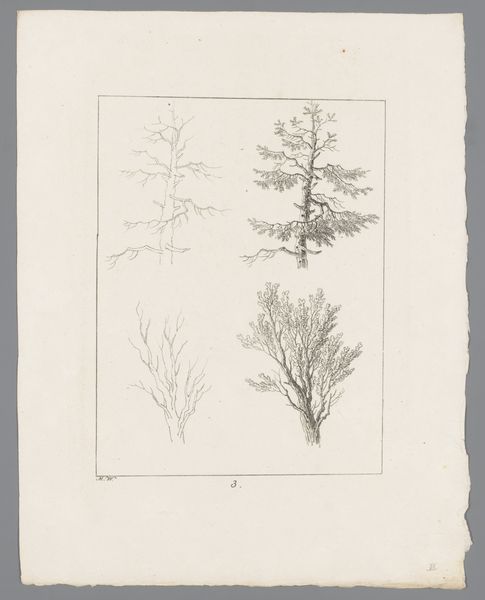
drawing, paper, pencil
#
drawing
#
16_19th-century
#
pen sketch
#
pencil sketch
#
landscape
#
paper
#
pencil
Copyright: Public Domain
Curator: Looking at this pen and pencil drawing, known as “Treetop”, one can immediately note the artist's keen eye for detail. The work is currently housed here at the Städel Museum. What’s your initial take on this landscape sketch? Editor: It strikes me as both fragile and resilient. There's a kind of delicate beauty in its simplicity, but also a strength suggested by the upward reach. I find myself thinking about environmental precarity looking at it today. Curator: Absolutely, it is evocative. Consider the paper itself, a material produced through labor. The method reflects an industry, the social implications of which must not be forgotten. Notice how the pencil markings capture the different light qualities across the tree. The paper as the backdrop, the material substance onto which labor meets with the creative act of drawing. Editor: Precisely. This invites a reflection on land usage. We might explore this image in relation to land ownership. We may well understand "landscape" as a projection of cultural ideals but not detached from politics, race, class, and the historical conditions shaping land access and aesthetic sensibilities. Who owned the land depicted? Whose gaze is centered in this drawing? Curator: Interesting points. The marks themselves document a direct encounter between hand, tool, and medium. The varying densities reveal not only light, but also the changing pressure and focus of the hand, marking duration of the labour. Editor: Indeed, we must then acknowledge how land in visual art often omits signs of labour. The sublime presented may obscure issues of gendered, racialized labour. Here, the bare branches perhaps hint at an environment under stress. Curator: Looking more closely at the craft involved, one cannot but consider that the consumption of landscape artworks such as "Treetop", becomes entwined with ideas of ownership and enjoyment in specific cultural contexts. Editor: And what is deliberately not shown can often reveal implicit assumptions. It compels a deep investigation of societal biases in ecological settings. Curator: It provides rich material to continue discussions related to resource exploitation. Editor: I think so, it encourages critical dialogue. A very important contribution!
Comments
No comments
Be the first to comment and join the conversation on the ultimate creative platform.
